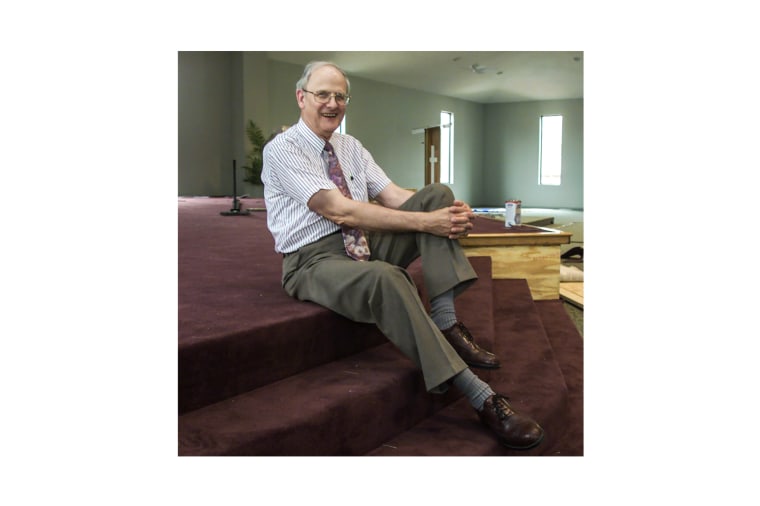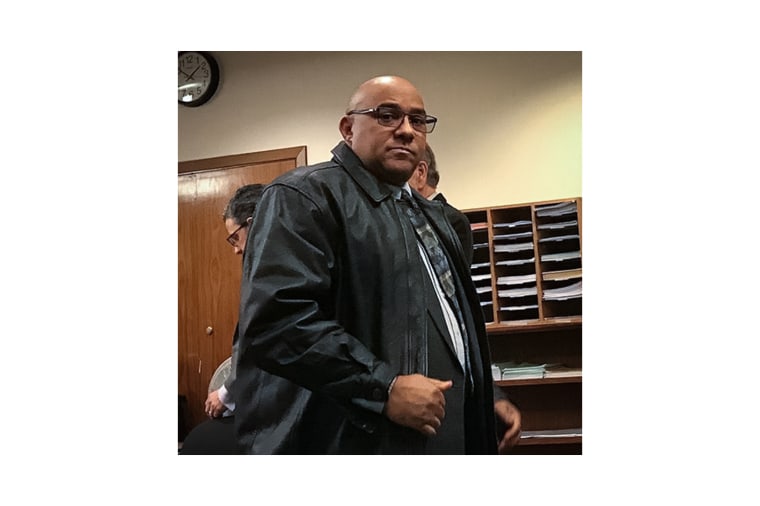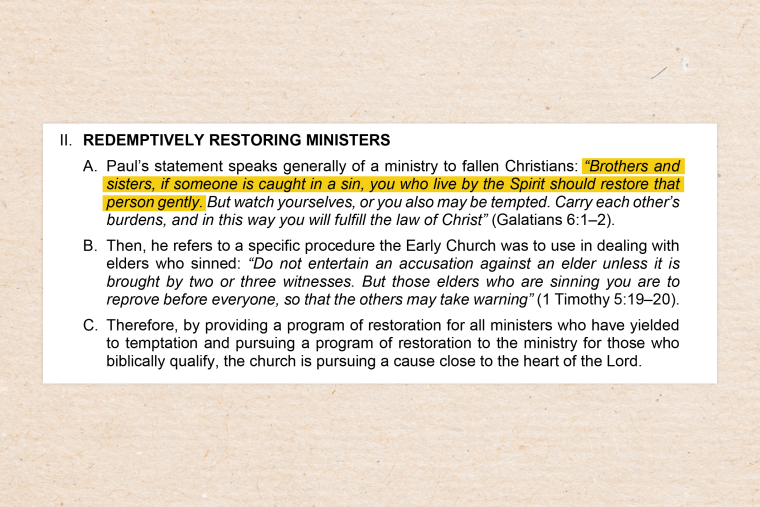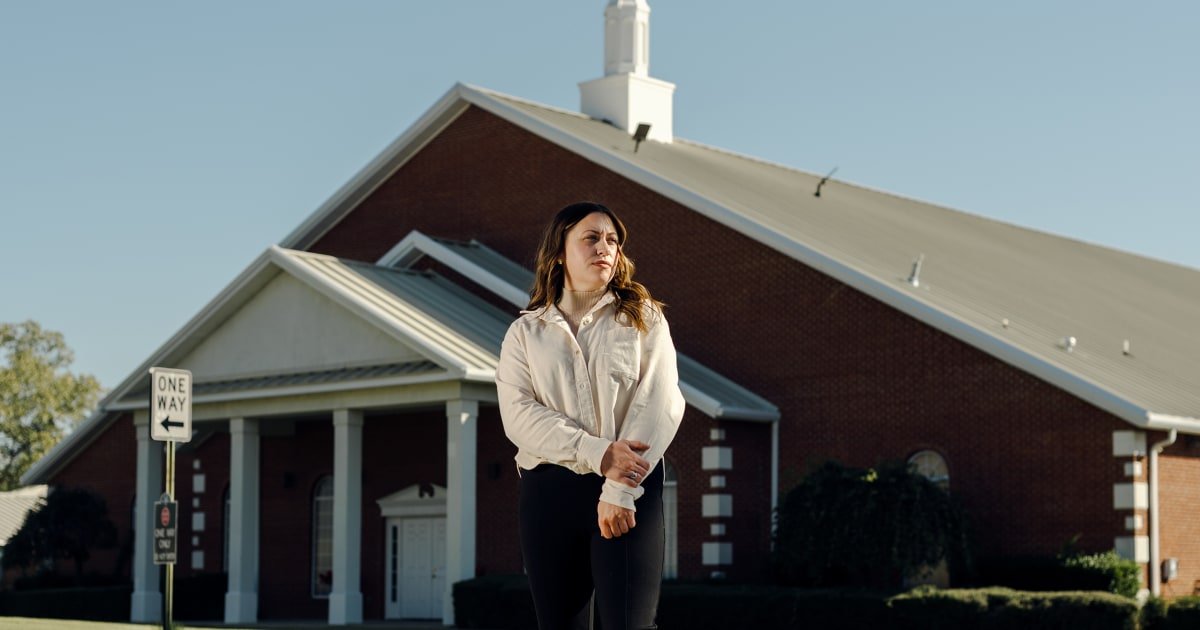As a “voluntary cooperative fellowship,” the General Council said, it runs background checks and sets professional standards for credentialed clergy but leaves local congregations to govern themselves — a structure leaders describe as central to the denomination’s identity. “Affiliated churches share doctrinal beliefs, but are independent in virtually every other way, including their local bylaws, staffing, policies and practices.”
The Assemblies of God could make anti-abuse policies mandatory at its 13,000 U.S. churches. The General Council debated doing exactly that in recent years — then backed away after lawyers warned it could expose the national office to costly lawsuits.
The decision left survivors reeling. In interviews with NBC News, they described being molested in a church van. Stalked in a church nursery. Raped with a statue of Jesus plucked from a mantle. Told to repent.
How many more, they wondered, would have to suffer before the Assemblies of God decided that protecting children mattered more than protecting itself?
Time and again throughout its history, the Assemblies of God was warned about the danger of sexual abuse. And time and again, survivors say, it extended grace to abusers rather than pursue justice for victims.
The pattern began in the 1970s, when the denomination confronted a challenge: what to do with ministers who fell into scandal.
Leaders created rules to discipline and restore pastors for offenses ranging from false teaching to financial misconduct to sexual sin. The framework emphasized mercy, citing Galatians: “Brothers and sisters, if someone is caught in a sin, you who live by the Spirit should restore that person gently.”
The policy reflected foundational beliefs. Born in Hot Springs, Arkansas, in 1914 amid a nationwide Pentecostal revival, the Assemblies of God spread quickly. At its core was a conviction that the Holy Spirit moves through believers in supernatural ways — speaking in tongues, prophecy, divine healing and other miracles.
Pastors who demonstrated such gifts of the spirit were treated as God’s anointed, their charisma viewed as proof of divine favor. The most gifted preachers transformed that aura into spiritual empires, drawing thousands to megachurches, filling television airwaves and sometimes amassing personal fortunes.
This theology has helped make the Assemblies of God one of the most dynamic forces in global Christianity, with 3 million members in the U.S. and nearly 90 million worldwide. But it also meant that when spiritual leaders strayed, churches large and small often prioritized redemption over accountability.
One early case: Illinois minister Allen Lehmann.
In 1979, Lehmann was accused of molesting two girls in his family, according to internal Assemblies of God documents filed in a lawsuit. Rather than call police, the denomination’s state district council suspended his ministerial credentials and placed him in a two-year restoration program, which included meetings with a psychologist.
Although the girls Lehmann allegedly abused were elementary school-age, records show, his ministerial file described his misconduct as “indiscretions with a young woman.”
The denomination’s national office received regular updates. In July 1980, a district official noted Lehmann’s restoration was “progressing slow.” One year later — four months ahead of schedule — the same official reported Lehmann had been “fully rehabilitated.”

With that stamp of approval, he transferred to another Assemblies of God church in Louisville, Kentucky. Soon, more allegations followed.
From 1993 to 2000, Lehmann sexually abused three other young relatives who visited his home on church mission trips, according to criminal records. Each girl said the abuse began when she was 6; one said it continued into her teens. She told police Lehmann raped her with a baseball bat, beat her with a leather strap and choked her, telling her “love has to hurt.”
Years later, Lehmann’s adult son — also an Assemblies of God pastor — reported him to police. He told investigators he discovered that the denomination had “covered up” his father’s earlier offenses, records show.
Lehmann pleaded guilty to child rape in 2018. He was given a 15-year suspended prison sentence and set free on probation. Survivors sued the Assemblies of God national office and its Illinois and Kentucky district councils, settling in 2022.
Reached by phone, Lehmann said, “Not interested,” and hung up.
The danger of restoring offenders has played out in less formal ways. The Assemblies of God enforces a national credentialing system for ministers, giving the General Council power to discipline, restore or expel those who fail to meet its theological and moral standards. But it only requires a church’s lead pastor to be credentialed. That gap gives congregations wide latitude to hire and restore youth pastors, worship leaders and other associate ministers — including those with histories of misconduct.
At Landmark Christian Center in Downey, California, the senior pastor chose his son, Timothy Scarr, to lead music. He was forced to find a replacement in 1985 after Scarr pleaded guilty to molesting two boys from the church — but his departure was temporary.
Five days after Scarr’s release from prison in 1988, his father threw him a party to welcome him back as worship leader.

The Bible says when sins are confessed, they are cast into the sea and remembered no more. It also warns that wolves often come draped in sheep’s clothing.
Over the next decade, Scarr sexually abused two more boys, according to criminal records. One teen said Scarr routinely pressured him for oral sex, including in the sanctuary, and threatened to kill himself if the boy refused. The other said Scarr took him to nearby Disneyland and invited him to sleep at his home, where late at night Scarr undressed and climbed on top of him.
After the teens went to police and filed lawsuits, Scarr’s father, who has since died, defended restoring him. He said he believed God had miraculously cured his son’s attraction to children, according to court records, so he saw it as his duty to reinstate him. “So powerful is the command to forgive under those circumstances,” the father’s lawyer wrote in a filing, “that failure to do so is itself a mortal sin which can bar one’s eternal soul from Heaven.”
Scarr was convicted of child sex abuse in 1998 and given 30 years in prison. At sentencing, one of his victims rebuked him: “You used the church as a hunting ground,” he said. “You hurt those who were innocent and called evil goodness.”
Released several years ago, Scarr didn’t respond to messages.
Landmark Christian Center, which has since closed, settled the teens’ lawsuits for $3.5 million, but not before a judge dismissed the Assemblies of God from the case.
Scarr’s victims argued the denomination was negligent because it lacked policies to bar a sex offender from ministry. The judge disagreed, saying courts could not force the Assemblies of God to police its churches.
Doing so, the judge wrote, would violate religious freedoms enshrined in the First Amendment.
By the late 1990s, the scourge of sexual abuse in churches had grown too public to ignore, and the Assemblies of God faced pressure to do more than simply encourage safeguards. Reports from Catholic and evangelical congregations were beginning to make national headlines, raising questions about how religious institutions protected children.
Those questions came to the fore at the Assemblies of God’s 1997 biennial General Council meeting in Indianapolis, where thousands of ministers considered a resolution barring anyone convicted of child sex abuse from holding ministerial credentials. Proponents invoked a Bible verse declaring anyone who harms a child is better off having a millstone hung around their neck and “drowned in the depth of the sea.”
But some ministers pushed back. What about pastors who abused children before becoming Christians? Others debated whether the ban should extend to pastors who molested 16- and 17-year-olds without having intercourse.
In the end, delegates voted to shelve the measure for two years so lawyers could study it.
When ministers reconvened in 1999, the Executive Presbytery — 21 senior ministers who act as a board of directors — urged against adoption. Requiring background checks of every minister, they said, would be expensive, wouldn’t reduce legal liability and could unjustly punish those convicted of “relatively minor” offenses before finding Jesus.
“Should such a person be forever barred from qualifying for ministerial credentials?” the presbyters asked.
Delegates let the proposal die.
Three years later, after The Boston Globe’s bombshell investigation exposed sexual abuse and cover-ups in the Catholic Church, the Assemblies of God released a statement saying it had long maintained a “zero tolerance” policy barring ministers found guilty of sexually abusing children from being credentialed. “This is not a new position but one the church has always held,” the statement said — seemingly at odds with the factious debate just a few years earlier.
The General Council didn’t provide NBC News with a copy of the policy or say when it was adopted. Even so, such a prohibition would have applied only to credentialed ministers, leaving local churches free to appoint anyone they chose for other roles.
Some continued allowing convicted sex offenders around children. The results were disastrous.
A Florida church let a man lead a Royal Rangers troop two decades after his conviction for child molestation, according to police and news reports. In Indiana, a church hired a janitor convicted of molesting a 7-year-old girl. A Pennsylvania congregation employed a counselor despite his conviction for sexually abusing two brothers. Each man went on to abuse again, criminal records show.
In New Jersey, the Eternal Life Christian Center hired Shawn Butler, despite a conviction for sexually assaulting girls, according to a lawsuit. The Assemblies of God-affiliated church gave him unfettered access to children for decades, allowing him to molest at least three more children, lawsuits say.

As youth minister, Butler groomed teens to believe God spoke through him, then exploited his divine authority to sexually abuse them, victims said.
“He made himself seem like he almost had these special powers,” said one survivor, whom NBC News isn’t naming at her request. “God sent him to do these things — and if you didn’t do those things, it’s almost like you were going to be in trouble spiritually.”
Butler was convicted again in 2018, and his victims sued the church. An insurance company that provided liability coverage to Eternal Life Christian Center also sued, arguing that because the church had “knowingly endangered” children by employing Butler, the insurer shouldn’t be forced to pay civil damages resulting from his crimes. The lawsuits were later settled. Eternal Life Christian Center didn’t respond to messages.
The woman who said Butler had manipulated her faith to abuse her as a teen blamed the Assemblies of God’s lack of safeguards for enabling him.
“They’re irresponsible,” she said. “I don’t know if they actually care about young people.”
The Assemblies of God’s program for rehabilitating pastors accused of sexual misconduct has long operated in secrecy. Restoration records are stored at the General Council’s office in Missouri, where they are kept confidential.
The process, carried out by regional district councils and overseen by the national office, requires disgraced pastors to step away from ministry for at least a year and undergo Christian counseling, according to a 135-page restoration handbook obtained by NBC News. The guidelines paint a picture of a kind of spiritual rehab, where ministers move from confession to renewal on the path back to God’s glory.

Practices have varied over the decades — and from region to region. Court records show that as recently as July 2018, Assemblies of God district officials sought to restore a New Jersey pastor accused of molesting five children. They never got the chance; that same month, the minister, Orlando Martinez-Chavez, was charged with sexually abusing a 10-year-old girl from church and was later sentenced to eight years in prison. In response to a lawsuit from the girl, the district council denied it was negligent.
The restoration handbook, updated in 2021, bars reinstating pastors who sexually abuse children. Homosexuality is also disqualifying. Still, the guidelines leave room for restoring ministers who admit to “flirtatious, inappropriately affectionate” conduct with minors, as well as misconduct with adults that falls short of sexual assault.
Some fallen pastors were sent to Emerge Ministries, a counseling center in Akron, Ohio, founded in 1973 by Assemblies of God minister Richard Dobbins, a pioneer of Christian psychology.
Dobbins, who died in 2014, helped craft the denomination’s restoration program and counseled hundreds of pastors, some for depression or marital struggles, others after sexual misconduct. At Emerge, pastors read scripture and reflected on the roots of their “moral failure.”









